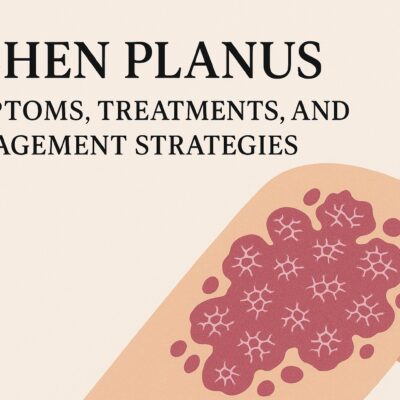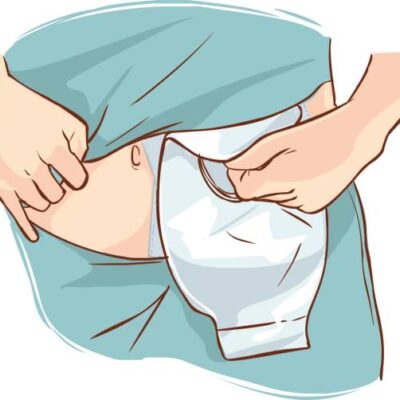Discover the vital role of micronutrients in accelerating wound healing. Explore the impact of vitamins and minerals on the recovery process.
Introduction
Wound healing is a complex biological process that involves multiple stages and requires various nutrients for optimal recovery. While macronutrients like proteins, carbohydrates, and fats are well-known for their role in tissue repair, micronutrients often go unnoticed. However, these essential vitamins and minerals are equally vital in accelerating wound healing. In this article, we will explore the significance of micronutrients and their impact on the healing process.
The Importance of Micronutrients
Micronutrients are nutrients required by the body in small amounts but are essential for various physiological functions. When it comes to wound healing, they play a crucial role in supporting the body’s immune response, collagen synthesis, angiogenesis, and antioxidant activity. Let’s delve into the specific micronutrients that contribute to the acceleration of wound healing.
1. Vitamin C: A Powerful Antioxidant
Vitamin C, also known as ascorbic acid, is a potent antioxidant that aids in collagen synthesis and strengthens the immune system. It plays a pivotal role in wound healing by promoting the production of collagen, a protein vital for wound closure and tissue regeneration. Additionally, vitamin C helps protect the body against harmful free radicals that can impede the healing process. Citrus fruits, berries, kiwi, and broccoli are excellent sources of vitamin C.
2. Vitamin A: Essential for Epithelialization
Vitamin A is crucial for the formation and maintenance of healthy skin and mucous membranes. It aids in epithelialization, the process of new cell growth and differentiation that is vital for wound closure. This micronutrient also enhances immune function, reducing the risk of infection during the healing process. Foods rich in vitamin A include carrots, sweet potatoes, spinach, and liver.
3. Vitamin E: Enhancing Collagen Synthesis
Vitamin E possesses powerful antioxidant properties, protecting cells from damage caused by free radicals. It aids in collagen synthesis, promoting the growth of new blood vessels and accelerating wound healing. This micronutrient also helps reduce inflammation, allowing for a faster recovery. Nuts, seeds, spinach, and vegetable oils are excellent sources of vitamin E.
4. Zinc: Essential for Cellular Growth
Zinc is a trace mineral that plays a vital role in various enzymatic reactions, including DNA synthesis, cell division, and protein synthesis. It is essential for cellular growth and replication, making it crucial for the healing of wounds. Zinc also supports immune function and collagen formation. Oysters, beef, poultry, beans, and nuts are good sources of zinc.
5. Copper: Facilitating Angiogenesis
Copper is a micronutrient involved in several enzymatic reactions and plays a crucial role in angiogenesis, the formation of new blood vessels. Adequate copper levels are essential for wound healing as it facilitates the transportation of oxygen and nutrients to the healing site. Shellfish, liver, nuts, and seeds are rich sources of copper.
6. Iron: Oxygen Transport and Collagen Synthesis
Iron is an essential mineral that plays a vital role in oxygen transport and the synthesis of collagen, an integral component of the extracellular matrix in wound healing. Iron deficiency can impair wound healing by reducing the supply of oxygen and nutrients to the injured area. Foods rich in iron include lean meats, poultry, fish, legumes, and leafy greens.
Frequently Asked Questions
- What are the best dietary sources of micronutrients for wound healing? The best dietary sources of micronutrients for wound healing include citrus fruits, berries, kiwi, broccoli, carrots, sweet potatoes, spinach, liver, nuts, seeds, vegetable oils, oysters, beef, poultry, beans, shellfish, and leafy greens.
- Are there any potential side effects of consuming too many micronutrients? While micronutrients are crucial for wound healing, consuming excessive amounts can have adverse effects. For example, an excessive intake of vitamin E may interfere with blood clotting, and excessive zinc intake can impair immune function. It’s important to maintain a balanced diet and consult with a healthcare professional before taking any supplements.
- Can micronutrients speed up the healing of chronic wounds? Micronutrients can play a supportive role in the healing of chronic wounds. However, it’s important to note that chronic wounds often require a comprehensive treatment approach and medical intervention. Adequate nutrition, including micronutrients, can contribute to the healing process but should be complemented with appropriate wound care and professional guidance.
- Can a deficiency in micronutrients delay wound healing? Yes, a deficiency in micronutrients can indeed delay wound healing. For instance, a deficiency in vitamin C can impair collagen synthesis, leading to slower wound closure. Similarly, inadequate zinc levels can hamper cellular growth and replication, prolonging the healing process. Maintaining adequate levels of micronutrients is crucial for optimal wound healing.
- Can micronutrients prevent scarring after wound healing? While micronutrients play a vital role in the wound healing process, their ability to prevent scarring may vary. Certain micronutrients like vitamin E and copper have been associated with scar reduction due to their antioxidant and angiogenesis-promoting properties. However, individual factors, such as the severity and type of wound, genetics, and overall health, also influence scarring.
- Are there any precautions to consider when using micronutrients for wound healing? When using micronutrients for wound healing, it is essential to maintain a balanced diet and avoid excessive supplementation without professional guidance. Certain medications and health conditions may interact with micronutrients, so it’s crucial to consult with a healthcare professional before making any significant dietary changes.
Conclusion
Micronutrients play an integral role in accelerating wound healing by supporting various aspects of the process, such as collagen synthesis, immune function, angiogenesis, and antioxidant activity. Vitamin C, vitamin A, vitamin E, zinc, copper, and iron are among the key micronutrients that contribute to optimal wound healing. However, it’s important to maintain a balanced diet and consult with healthcare professionals to ensure proper nutrition and supplementation. By harnessing the power of micronutrients, we can expedite the healing process and promote optimal recovery.






No Comment! Be the first one.